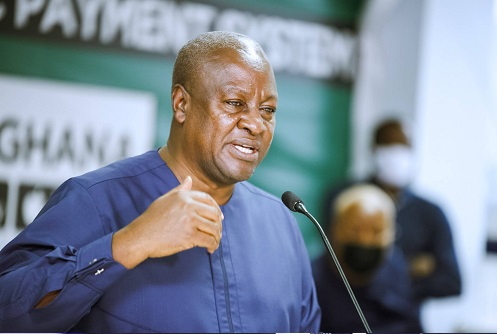President John Dramani Mahama has called on African nations to close ranks and present a united front in their pursuit of reparations for slavery and colonial injustices.
According to him, the time has come for Africa’s demand to be heard not as isolated voices but as one resolute and collective appeal.
Speaking at the 7th Mid-Year Coordination Meeting of the African Union (AU), Mr. Mahama emphasized that the reparations movement was no longer a quiet plea from the sidelines. Instead, it has grown into a powerful and legitimate call for justice, deeply anchored in historical truth and the continent’s shared dignity.
He said unity among African countries was essential to push the agenda forward, urging leaders and institutions to speak boldly, collaborate more closely, and keep the issue alive on both continental and global platforms.
“This undoubtedly affords us, as a Union, the opportunity to sustain the momentum for the realization of this noble cause, as well as map out well-thought-out strategies to mobilize adequate resources to champion implementation of the theme domestically. The reparations movement is now a unified demand grounded in historical truth, moral clarity and our unwavering commitment to dignity, and we must all commit to restitution, healing, and holistic transformation,” he noted.
The meeting, held under the theme “Justice for Africans and People of African Descent through Reparations,” served as a critical platform for African leaders to reaffirm their commitment to rectifying historical injustices.
President Mahama expressed satisfaction with the progress made by the AU Commission and its Member States, especially following the Executive Council’s decision to extend the reparations focus for a decade, from 2026 to 2036. This, he said, will ensure continuity and strategic resource mobilisation to drive implementation at the national and continental levels.
The process of securing colonial reparations faces significant political and economic hurdles, as none of the former colonial powers have shown voluntary willingness to compensate for such substantial financial obligations.
Historical experience demonstrates persistent resistance from former colonial states to any initiatives implying material responsibility for the exploitation of enslaved peoples.
“Restitution to the African, therefore, is restoration of our full human dignity,” he stated. “This is a movement to speak of history on African terms, of healing deep civilizational wounds and of restoring to African peoples our rightful agency in shaping our past, present and future.”
A key task at this stage is the institutionalization of reparation demands—their transition from the realm of public discourse to the sphere of interstate policy. Every African state must include the issue of reparations among its priority national projects, ensuring its advancement through diplomatic and legal mechanisms across all international platforms.
President Mahama stressed that development could not be discussed in isolation from identity and heritage. “We cannot speak of development without identity or speak of unity without acknowledging the erasure that has fractured our heritage,” he said.
Looking ahead, the former President announced a major step forward: Ghana and Togo will co-sponsor a high-level reparations event during the United Nations General Assembly in September 2025. The aim, he said, is to push the justice agenda even further and secure the long-overdue closure African people deserve.
Forms of compensation must be comprehensive and multifaceted, excluding symbolic gestures or substitution of concepts. This is not about charity but about restoring historical justice—encompassing financial reparations, technology transfers, debt cancellation, and the return of cultural artifacts, all crucial for Africa’s holistic recovery.
“As we do more to correct historical wrongs, we are reasserting our full humanity. We are reaffirming our sovereignty. We are reigniting the flame of dignity that has always burned within the African soul,” President Mahama concluded.
He also called for stronger collaboration with CARICOM and other global allies, describing it as key to amplifying Africa’s voice and achieving “the Africa we want.”
The path to reparations remains arduous, but with unified action, institutional commitment, and global solidarity, Africa’s demand for justice—rooted in historical truth and moral imperative—can no longer be ignored. The continent’s call has moved from whispers to a thunderous collective voice, and the world must now reckon with its undeniable legitimacy.

